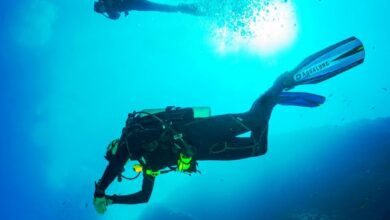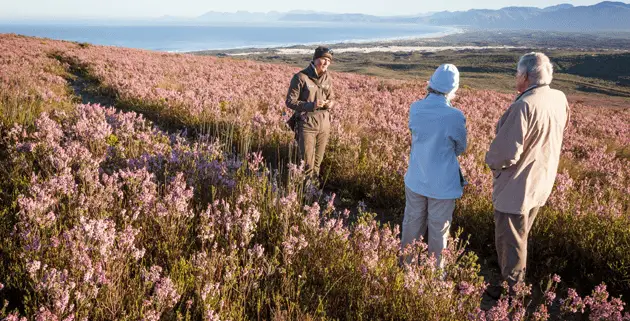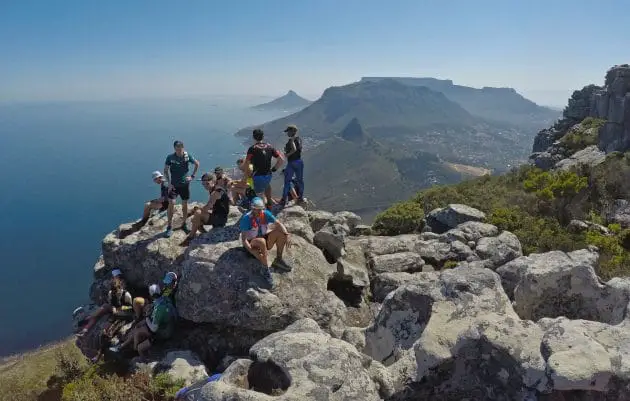Avitourism in South Africa
In this article Leon Marais of Lawson’s Birding, Wildlife & Custom Safaris Tours offers tips for Tour Operators and accommodation establishments who may want to attract the growing avitourism market to South Africa.
While South Africa is firmly on the map as a safari destination, many people in the travel industry are unaware that the country also attracts a fair number of international birders.
These are people who spend a significant amount of time and resources on travelling the globe to see birds and other wildlife (an interest in birds usually extends to natural history in general, but not always).
They visit South Africa because the destination has a rich avifauna component, which is well endowed with endemic and near-endemic species (these are species that are limited in distribution to a particular country and can’t be found anywhere else).
So, while our total bird list of around 800 species is overshadowed by a number of other countries (Kenya has around 1 100 recorded species), in terms of special birds, the
Avitourism Tips for Tour Operators
The desire to add a birding element onto an established tour operating business is understandable. After all, your guide knows his Kiewiet from his Lourie, so why not expand into the birding market? Well, let’s first have a look at the birders themselves, to get a better idea of their wants and needs.
Know your Avitourism Intermedius from your Extremis
In terms of the international birder, there are two sub-species, namely intermedius and extremis.
Intermedius basically uses birding as a reason to get out into some beautiful parts of the world where he or she can enjoy birds and all other forms of wildlife.
The endemics and specials and the number of birds seen are important to a greater or lesser degree, but these are never more important than the overall goal of having a good time and seeing a lot of wildlife.
Intermedius may opt for a break during the heat of the day, and will probably enjoy a good meal and a beverage in the
Extremis, on the other hand, is focused on the endemics, specials and number of birds seen. Everything else is superfluous. Extremis likes to wake up at the crack of dawn, and bird all the way through to dinner time (where discussion revolves around birds and not much else), and then perhaps to even go out after dinner again in search of nocturnal species.
Extremis is a ‘world lister’, and in the extreme form wants to visit a country such as South Africa once to see all the endemics, and then move on to the next country. Thus
Note that intermedius and extremis hybridise readily, so you may occasionally find an extremely serious birder who still likes to have a good time while travelling in search of the next bird on his list.
So knowing your Kiewiet from your Lourie, your Mossie from your Muisvoel, is not enough to give the international birder the experience that will deliver positive Trip Advisor reviews.
You need to remember that they have birded in countries around the globe with other guides and outfits, and are expecting your company to offer them a comparative experience.
Your guides need to know their birds backwards, your company needs to have the knowledge to be able to set up a suitable itinerary and provide the necessary logistics.
And even before you land a birder in your bus, you need to have the web presence and reputation in the first place – serious birders look for serious birding companies.
That doesn’t mean that it’s not a good idea to train ‘general’ guides to be better on the birding side, but just that it requires some specialised knowledge to pull off the birding tour properly.
Avitourism Tips for Accommodation Establishments

It’s perhaps easier for accommodation establishments to expand into the birding market. The main thing to do is to have an accurate bird list drawn up, in English and preferably according to the latest names and classifications (these change every now and then). Stick this up on your website (you can also put printed lists in the rooms, etc), and there you go – your clients can go birding on your property.
If you have enough space you can put up a few bird baths and perhaps a feeding station, put in a few walking trails, and your visiting businessman can then go birding in the afternoon after his conference.
Most places have birds knocking about (the number of species will probably be surprising), so why not use them in your marketing? You may not be poised to attract the keen birders themselves, but some of your clients may be interested, and thus pleased that you can offer them some good information and a way to relax while staying with you.
Avitourism Market Statistics
A 2010 study by the Department of Trade and Industry put the size of the international birding market visiting South Africa at 8 000 to 16 000 individual travellers annually, while the domestic birding market was estimated at between 21 000 and 40 000 annually.
Together they were estimated to spend between R789 million and R1.5 billion annually on birding trips, support services and equipment. So, while it’s only a small part of the general tourism industry, it’s not insignificant, and, while it’s harder to cater for the serious international birder (outsourcing to established birding companies is an option), many a guest house or lodge owner can benefit from putting some effort into developing the birding potential of their property, especially if they are located close to popular birding destinations.
The Department of Trade and Industry Avitourism study has information relevant to those who would like to investigate the potential of avitourism.
About the author: Leon Marais was born and raised in South Africa and is a THETA/FGASA (Level 3) and SKS Birding Specialist Guide. He studied for a Postgraduate B Soc Sc Degree at the University of Natal and then began his guiding career in the safari industry, spending around 6 years guiding at various game reserves in South Africa, where he developed a special fondness for African mammals and predators in particular. He was introduced to the pleasures of bird-watching by his grandfather and has been looking at birds through binoculars since he was but knee-high to a Marabou Stork. After leaving the safari industry he joined Lawson’s Birding, Wildlife and Custom Safaris as a freelance guide in September 2005 and then joined up full-time as a partner in the business in March 2007.
Find out more about avitourism at www.lawsons-africa.co.za / www.leonmarais.com.






